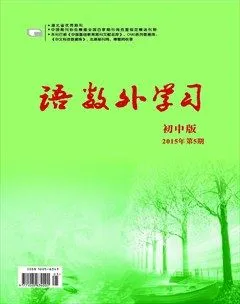说说那些起源于汉语的英语词汇
English words from Chinese words are often denoted as being “loanwords”. A loanword is one that does not share a literal translation of the word. Quite simply, the word is borrowed and then used into the new language.
在英语中,那些来自于汉语的词汇通常都被称为“外来词汇”。一个外来词。并不是按照字面意思翻译过来的。简单来说,就是这个词汇是从别处借过来,然后被用到一种新的语言当中。
1. Gung Ho
工合
The literal translation is “work together”. The English use was popularized by Marines fighting in the Pacific in World War II. The phrase came to mean: “whole heartedly enthusiastic, and loyal, eager, and zealous”.
字面意思是“合作、同心协力”。它在英语中被广泛使用是在二战中美国海军陆战队在太平洋作战的时期。当时这个短语的意思是:“竭诚热情、忠诚、愿望、热心”。
2. Typhoon
台风
The literal translation is “strong wind”. Experts say the term, typhoon from the Greek and Arabic, was strengthened with the Chinese translation.
字面意思是“强风”。有专家表示这个词汇源自于希腊语和阿拉伯语,中文翻译过来后意思被加强了。
3. China
中国
In Chinese, it literally means “the middle country”. The name was first used by the Italian explorer, Marco Polo.
在中文里的字面意思是“中间的国家”。最早使用这个名字的人是意大利探险家马可·波罗。
4. Silk
丝绸
The word was first introduced to Western culture by smugglers who took silk worms and mulberry leaves out of China in 552 Common Era (CE).
这个词语第一次被引入到西方是在公元552年走私者将蚕和桑叶从中国偷运到西方的时候。
5. Feng Shui
风水
The literall translation is “wind and water”. It is the Chinese belief in creating a spiritual balance in one’s home and workplace. The word was first introduced to Westerners in 1757.
字面意思是“风和水”。风水是中国人在家和工作场所创造精神平衡的一种信仰。这个词最开始进入西方是在1757年。
6. Kowtow
磕头
Literally means “knock head”. In China the word is a way of bowing and touching the forehead to the ground to indicate respect. In English the word means to “be servile: to behave in an extremely submissive way in order to please somebody in a position of authority”.
字面意思就是“叩头”。在汉语中,它指鞠躬并把前额碰到地上以示尊重。在英语中的意思是“奴化:为了取悦权威,表现得非常顺从”。
7. Lose Face
丢面子
The literal translation is “humiliation”. The word is said to have been introduced to English speakers in 1876.
字面的意思是“丢脸、耻辱”。据说这个词汇是在1876年引入西方的。
8. Tai Chi
太极
In Chinese, the word is literally translated to the “supreme ultimate”. It is now used in American lingo to describe the martial art of tai chi. Some emphasize the slow movements as a form of exercise, while others practice it as a martial art.
按照中文直译过来就是“太极(最高极限)”。这也是现在美国武术馆中所描述的太极。一些人将其看作是一种慢动作的练习方式,但是另一些人将其当作武术来练。
9. Oolong
乌龙茶
Literally means“black dragon”. First introduced to the English language in 1852 as a dark, black tea.
字面意思是“黑龙”。首次是在1852年作为红茶引入的。

